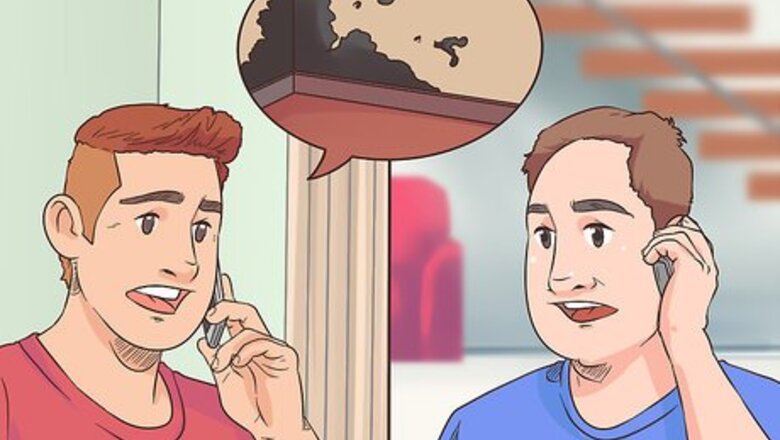
views
X
Expert Source
Mike KapurCertified Mold Assessor & Home Inspector, Sonic Home Inspections
Expert Interview. 19 August 2020.
If you have detected mold in a building you do not own, you should contact your landlord, supervisor, or government agencies.
- If you're living in a rented home and you see black mold, call your landlord right away to let them know about the situation and find out what should happen next.
- If your landlord doesn't do anything about the mold in your home, contact your local health department or housing department.
- Talk to your supervisor about black mold in your workplace, but contact OSHA if nothing is done about the problem.
- If you report the mold to your boss or landlord and nothing happens, contact an attorney if the mold starts to make you or your family members sick.
Reporting Black Mold in Your Rented Home
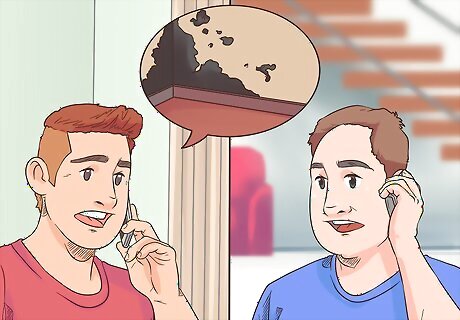
Contact your landlord. Call or email your landlord to inform them that you have found mold in your home. Be specific as to the location of the mold and what you think is causing it. Look carefully at nearby areas to see if you find more mold that you didn’t originally see. This may help you determine the cause of the mold. Be polite but firm that you are concerned about potential health problems that could result from you and those living with you being exposed to the mold.
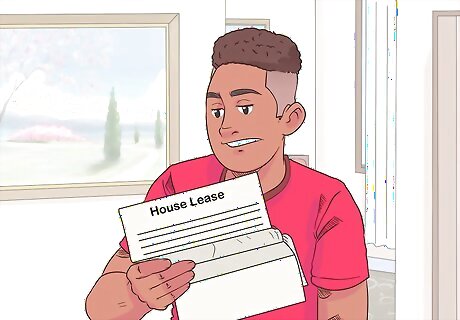
Review your lease to determine who is responsible for mold removal. You should still have a copy of your lease agreement in your possession; take this out and review the details about mold and about who is responsible for certain types of repairs. If you don’t still have a copy of your lease, you may request one free copy from your landlord. If you have found mold on furniture, shower tiles or the bathtub, or window sills you will most likely be held responsible for cleaning this mold and keeping the areas dry enough to prevent future mold. If you have found mold on the ceiling, seeping through basement walls, or on walls near leaky pipes, your landlord is most likely responsible for cleaning this mold and for fixing the problems causing it.

Ask your landlord to share their plan for removing the mold with you. If the mold in your house is the result of structural or plumbing problems in your home, your landlord is responsible for making these repairs in a reasonable amount of time. Politely ask when the problem will be fixed and what you should do in the meantime. Infants, elderly people, and people with compromised immune systems should not be exposed to any types of mold. If you have concerns about the length of time the landlord is saying the repairs will take, you may need to stay somewhere else temporarily.
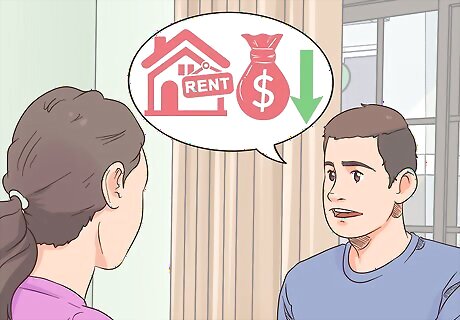
Ask your landlord to reduce your rent or help you stay elsewhere. If you or anyone in the home cannot be around the mold until the repairs are finished, you can ask your landlord if they will reduce your rent if you find yourself another place to stay. In some cases, a landlord may provide you with a hotel stay. You have federal rights as a tenant to live in a habitable home. If your home is uninhabitable for you because it’s unsafe, your landlord is required to fix the situation. States may differ on what makes a home unsafe or uninhabitable.
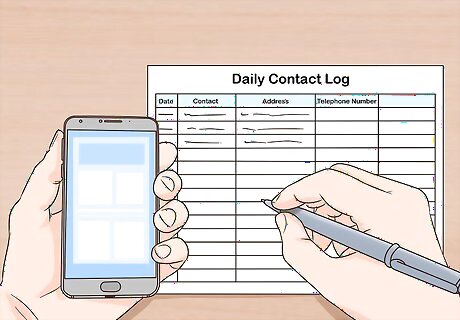
Keep detailed records of your contact with your landlord. Keeping records of your calls or emails will help you if future problems come up with your landlord making repairs. Maintain a call log and the result of the conversations about the mold problem. Make notes of dates your landlord says repairs will be made. If you have difficulty getting in touch with your landlord, send a certified letter in the mail stating that you have tried contacting them on certain dates regarding mold and problems in the home leading to mold.
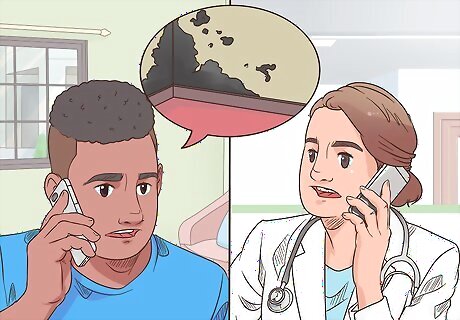
Contact your physician if you believe you have become ill from mold. Otherwise healthy people may experience sinus or upper respiratory illness because of prolonged mold exposure. People with asthma, infants, the elderly, or people with other serious health problems may have more serious reactions to mold exposure. See your physician as soon as you or anyone in the home experiences illness for a proper diagnosis. Be sure to explain to your physician that there is mold in your home.
Reporting Black Mold in Your Workplace
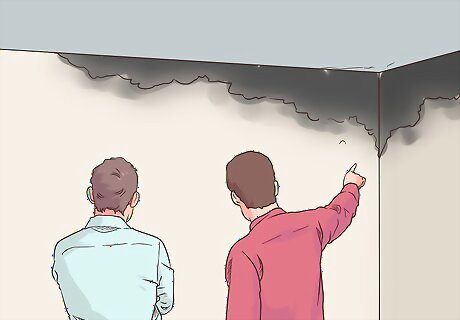
Report the mold to your supervisor. If you work in a building that has a mold problem, the first step is to contact your supervisor and report the problem to them. They should contact maintenance personnel to fix the problem promptly.
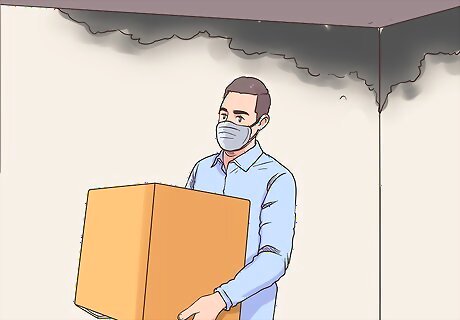
Work away from the mold if necessary. If you have a compromised immune system and need to stay away from mold at all times, inform your supervisor of your health issue. Your supervisor should do their best to accommodate you to have working conditions that are safe for you. Ask to work from home or in a different location temporarily until the mold problem is solved. You do not need to worry about bringing mold to another location; it will stay where the moisture problem is.
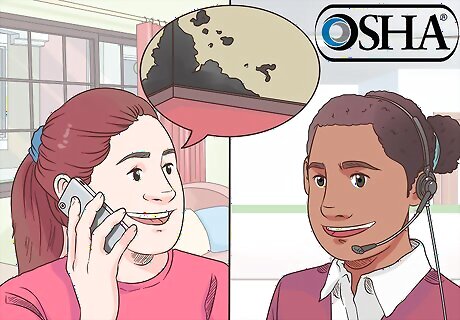
Contact OSHA if you report a problem and nothing happens. If you report the problem to your supervisor or maintenance and nothing happens to fix the problem, contact your local Occupational Safety and Health Administration. Visit https://www.osha.gov/html/RAmap.html to find your local OSHA contact information. Explain that your workplace has mold problem and that you have reported it to the company on certain dates but the problem has not been fixed.
Getting Help from Legal Agencies
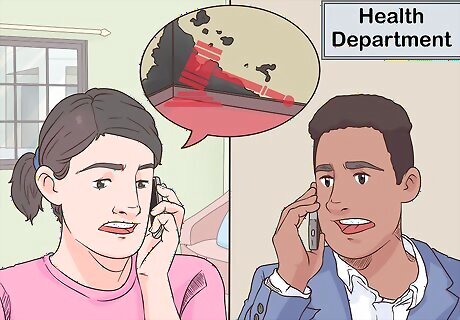
Contact your local health department to report negligence. If your landlord or employer won’t fix problems that are not your fault within a reasonable amount of time, you have the right to report health code violations to your local health department. Most health departments have offices at the city or county level. Find the number for your state’s Department of Health online or in the phone book. They may direct you to a more local number to make the report.
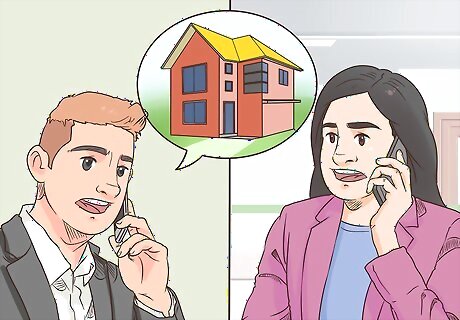
Contact your local housing department if your home is unsafe. You have the right to report housing violations if your landlord will not fix problems in your home that are not your fault. Look online or in the phone book for the number to call for your local housing department.
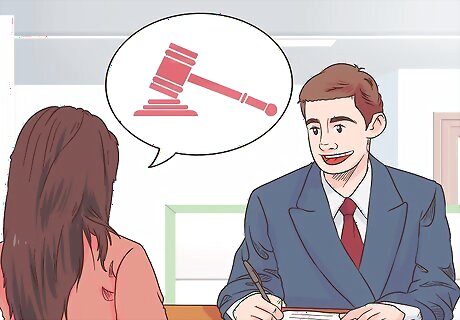
Take legal action in court if you become ill from mold. If your physician has verified that mold exposure in a building you do not own is the direct cause of your illness, and you feel that your landlord or company has neglected their responsibilities to provide you with a safe environment, you have the right to pursue a court case. Be sure that you have maintained documents of contact between you and your landlord or supervisors, with dates of contact and results of the conversations, and tell your lawyer about these records.


















Comments
0 comment